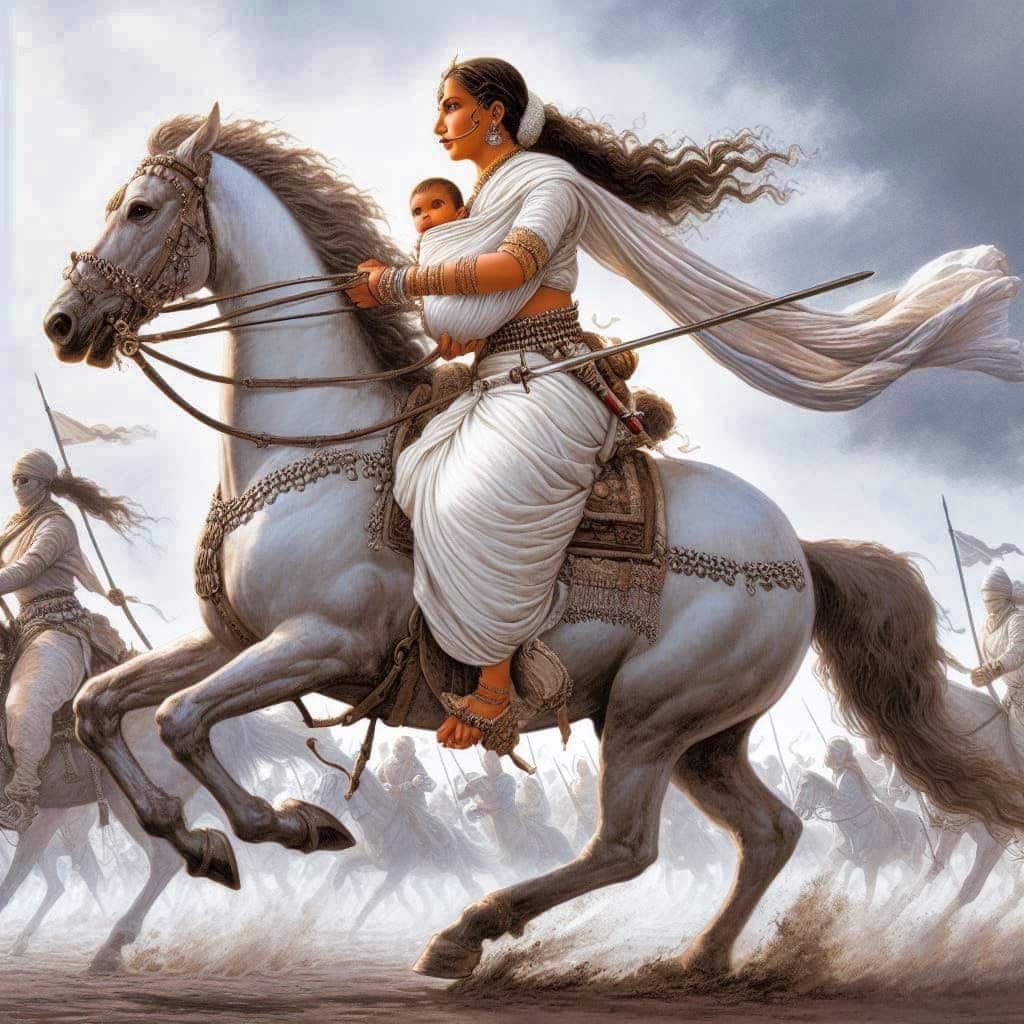
Rani Lakshmibai: The Fearless Warrior Queen of Jhansi
Rani Lakshmibai, also known as the Rani of Jhansi, is a legendary figure whose name reverberates through the corridors of Indian history as a symbol of courage, resilience, and valor. Born on November 19, 1828, in Varanasi, she rose to prominence as one of the most iconic figures of the Indian Rebellion of 1857, challenging the might of the British Empire with unwavering determination.
Lakshmibai’s early years were marked by tragedy and adversity. After the untimely death of her mother, she was raised by her father, Moropant Tambe, who ensured that she received an education befitting a princess. Her upbringing instilled in her a strong sense of independence and a deep love for her motherland.
In 1842, Lakshmibai married Raja Gangadhar Rao Newalkar, the Maharaja of Jhansi, thus becoming the queen consort of the princely state of Jhansi. Despite societal norms that confined women to domestic roles, Lakshmibai actively participated in the affairs of state, displaying remarkable administrative acumen and leadership qualities.
The turning point in Lakshmibai’s life came with the Doctrine of Lapse introduced by the British East India Company, which sought to annex princely states with no natural heir. Following her husband’s death in 1853, the British denied her adopted son, Damodar Rao, the right to succeed the throne of Jhansi, citing the Doctrine of Lapse.
Refusing to accept this injustice, Lakshmibai resolved to fight for the rights of her people and defend the sovereignty of Jhansi. She emerged as a formidable leader, rallying her troops and fortifying the defenses of the Jhansi fort in preparation for the inevitable conflict with the British.
The outbreak of the Indian Rebellion of 1857 provided Lakshmibai with the opportunity to join forces with other Indian rulers and freedom fighters in a united struggle against British rule. She played a pivotal role in organizing and leading the rebellion in Jhansi, inspiring her soldiers with her fearless demeanor and unwavering resolve.
Lakshmibai’s valorous defense of Jhansi during the siege of 1857 became the stuff of legend. Despite facing overwhelming odds, she led her troops into battle, displaying extraordinary bravery and military tactics. Her famous battle cry, “Khub lari mardani, woh to Jhansi wali Rani thi” (She fought like a man, that Queen of Jhansi), echoed through the battlefield, striking fear into the hearts of her enemies.
The fall of Jhansi to British forces in 1858 marked a tragic chapter in Lakshmibai’s life. Rather than surrendering to the British, she chose to mount her horse, clad in armor, and lead a daring charge against the enemy. Though outnumbered and outgunned, she fought valiantly until her last breath, refusing to be captured alive.
Lakshmibai’s martyrdom immortalized her in the annals of Indian history as a symbol of resistance against colonial oppression. Her unwavering courage, indomitable spirit, and sacrifice continue to inspire generations of Indians in their quest for freedom and justice.
In conclusion, Rani Lakshmibai’s legacy serves as a testament to the power of courage, resilience, and defiance in the face of tyranny. Her life is a shining example of female empowerment and leadership, transcending the constraints of gender and societal norms. As we commemorate her memory, let us draw inspiration from her extraordinary life and strive to uphold the values for which she fought and sacrificed—the values of freedom, equality, and dignity for all.













